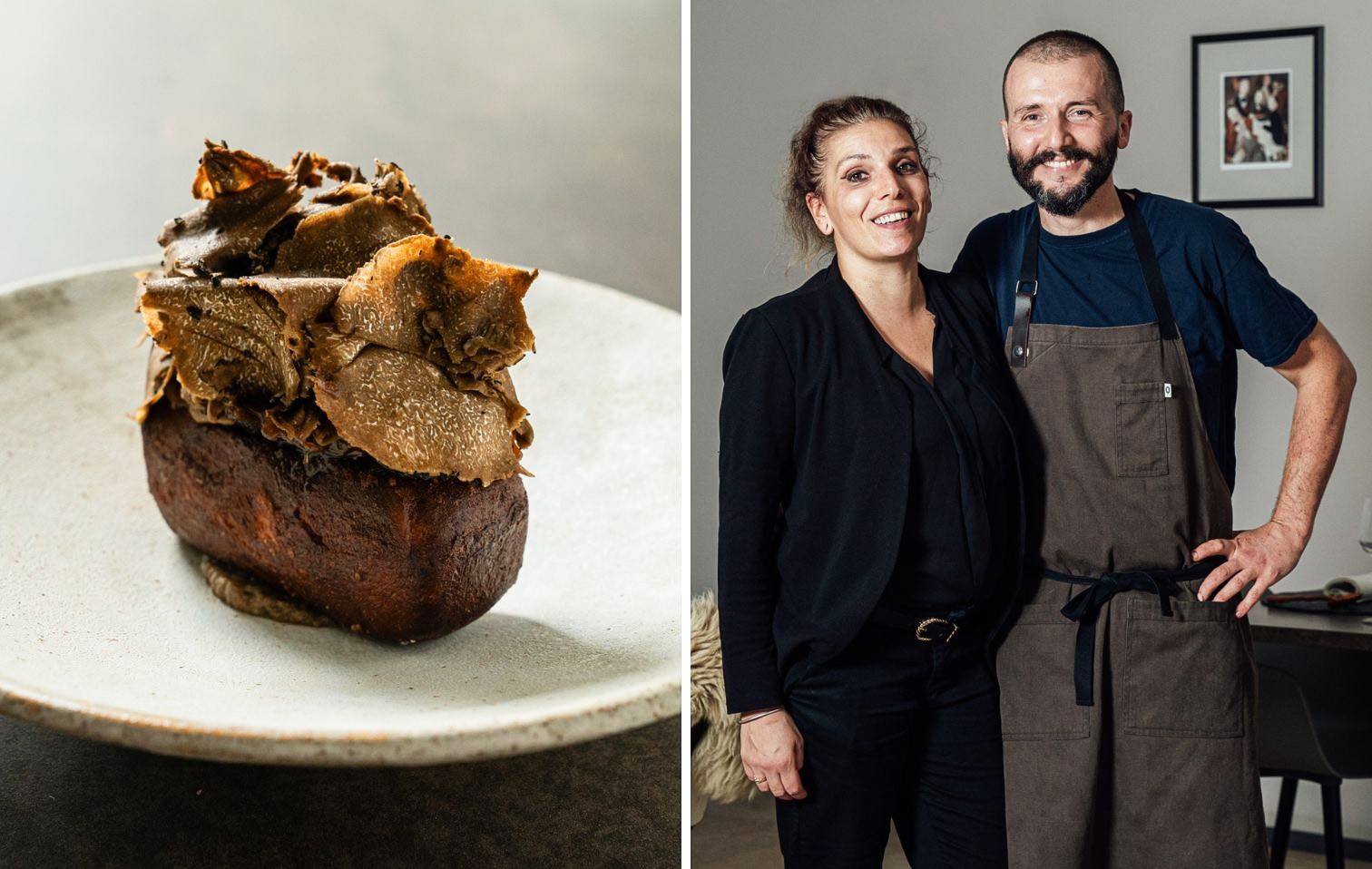New challenge for Mirko Gatti and Sara Pau: Àbitat is born, an ambitious circular cooking project ranging from three gourmet menus to foraging days, through fermentation research and total use of fire.
Photographs by Vincenzo Moraca and Aromi.Group
The Format: From Radici to Àbitat
San Fermo della Battaglia, in the province of Como, the lake is very close. Until mid-April of this 2024, precisely on the 16th of the month, the cozy establishment founded in 2018 by Mirko Gatti and Sara Pau will be Radici, a Michelin green star; from the next day, it will change its name to Àbitat and will evolve into something more complex beyond the restaurant operation. This choice is driven by an ambitious purpose, a logical one (although it is only our assumption) given the crowded landscape of gastronomic places referring to 'roots', and even more understandable once you get to know the deep soul of this couple of restaurateurs.
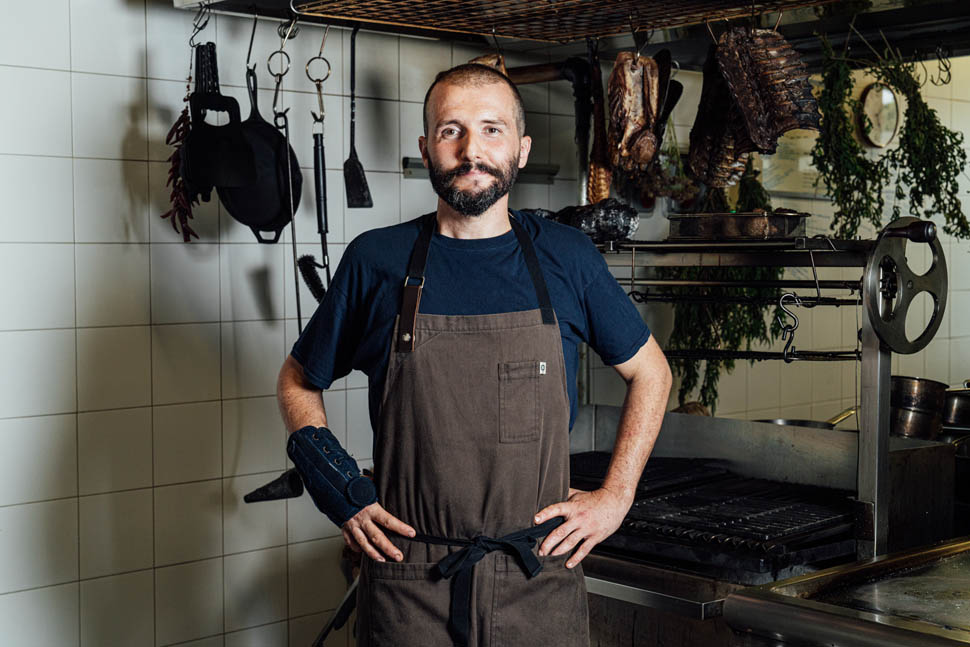
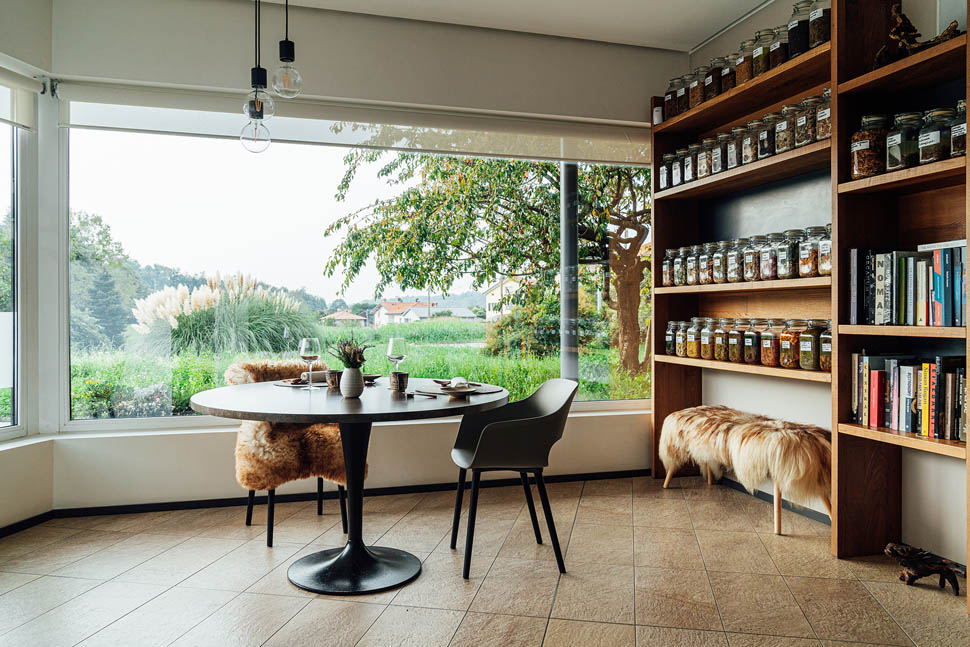
It is the desire - and to some extent the necessity - to delve into a new gastronomic vision that goes beyond the content of the dish, while keeping its focus; this is so that, starting from a perspective of circular cooking and its principles, from the three F's (fire, foraging, fermentations), to no waste, to respect for nature and its cycles, true culture can be generated. We don't hesitate to repeat ourselves: the idea is truly ambitious and requires a high level of commitment, but here we've had a great - and very satisfying - experience, and with Mirko, we talked extensively, realizing how his way of seeing things should be well understood and then spread.
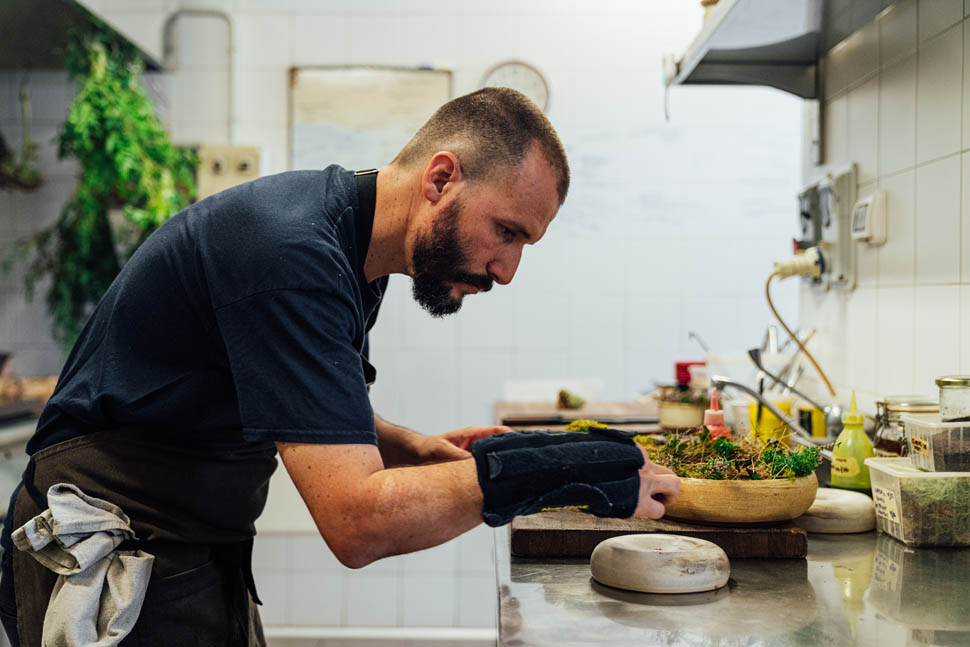
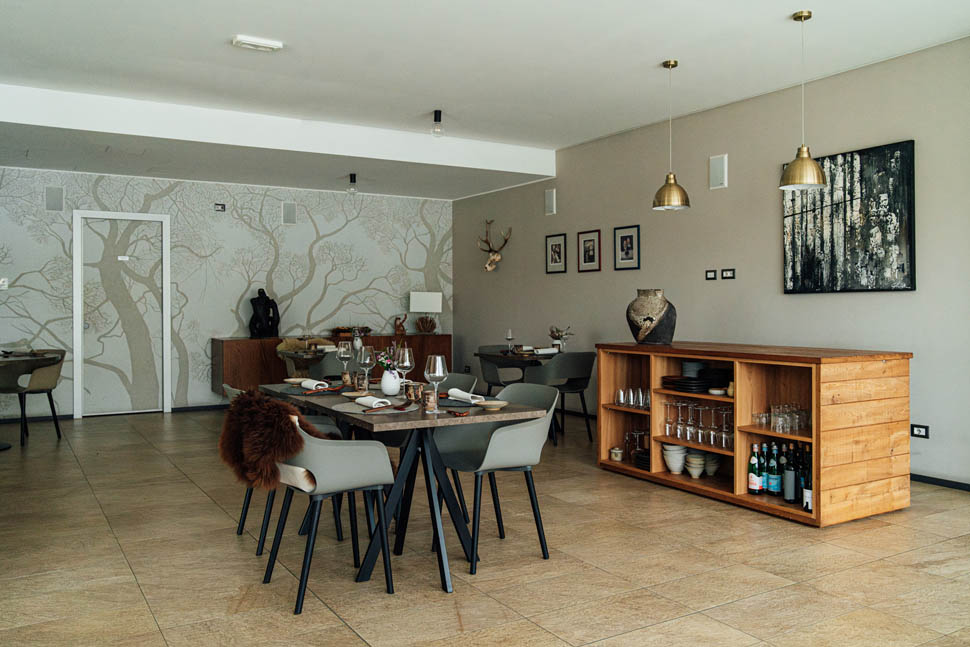
"I started working in the kitchen almost by chance, I didn't follow the classic path, at first it seemed like something was missing. Now I work together with schools and universities for fermentations, but one has to create their own path through field experience. I started in London and fortunately ended up in a nice restaurant that helped me appreciate what was happening in the kitchen: I loved the adrenaline and teamwork from the beginning, and I'm sure they were triggering elements because my love for the raw ingredients came later. If I like something, I dive into it without hesitation: so I immediately started studying a lot on my own and became passionate about that Nordic cuisine that was starting to gain success. It was the time between 2010 and 2012, in London the novelties arrived very quickly, we heard about Noma and it was filling up with people who brought their experience after working in Denmark."
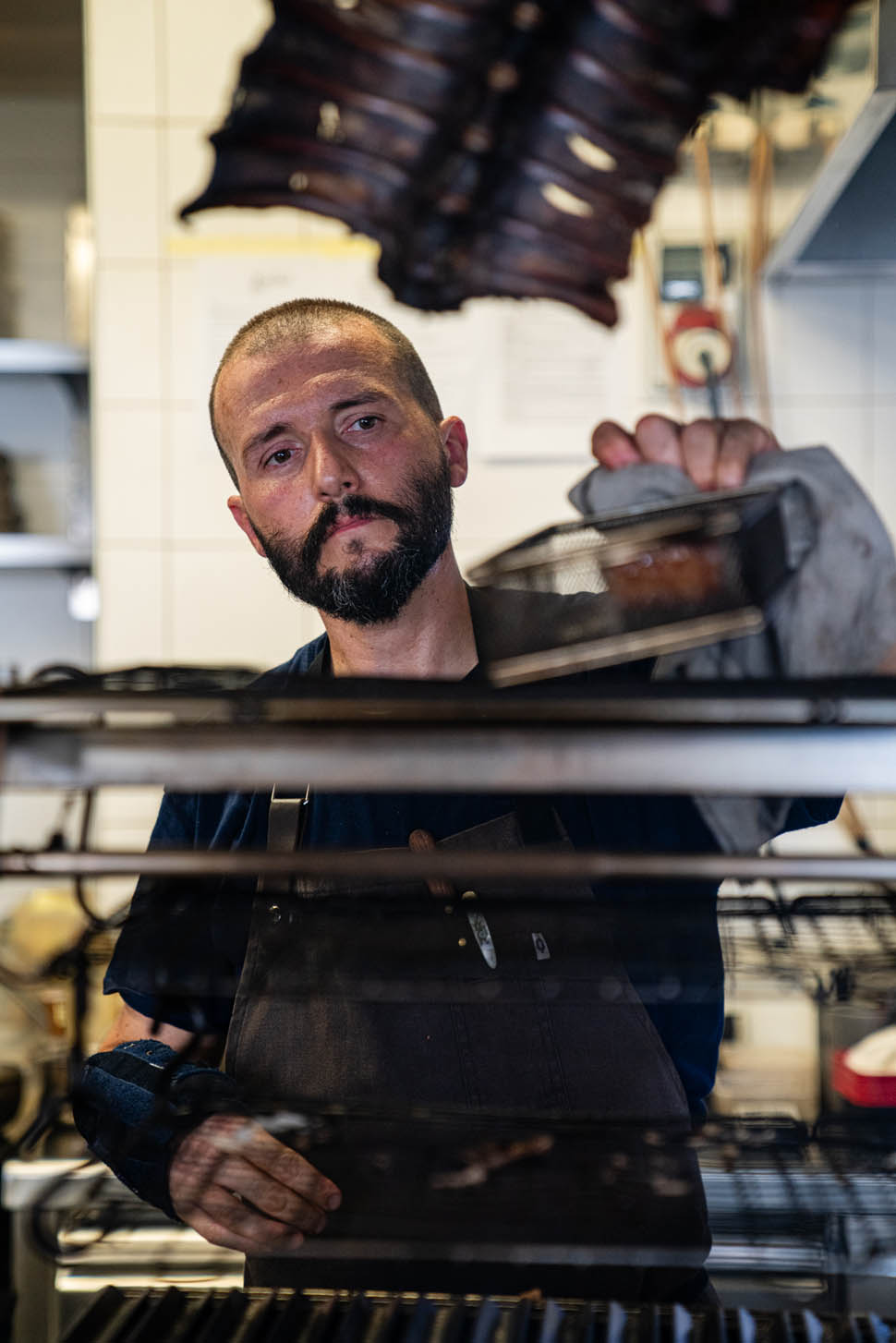
From Noma and also from Relae, Gatti, born in 1981, also passes through City Social, Arbutus, and Chiltern Firehouse. "Nature has always created a lot of curiosity in me, as a boy I asked myself a lot of questions, so the world of foraging attracted me a lot." Hence, the research and gathering of wild edible herbs will be a prominent aspect of the three interpretations of Àbitat, which besides being a restaurant will also be a Culture Hub and Lab (production of infusions, fermented beverages, and juices), with the former focused on educational projects related to a truly sustainable kitchen devoid of waste.
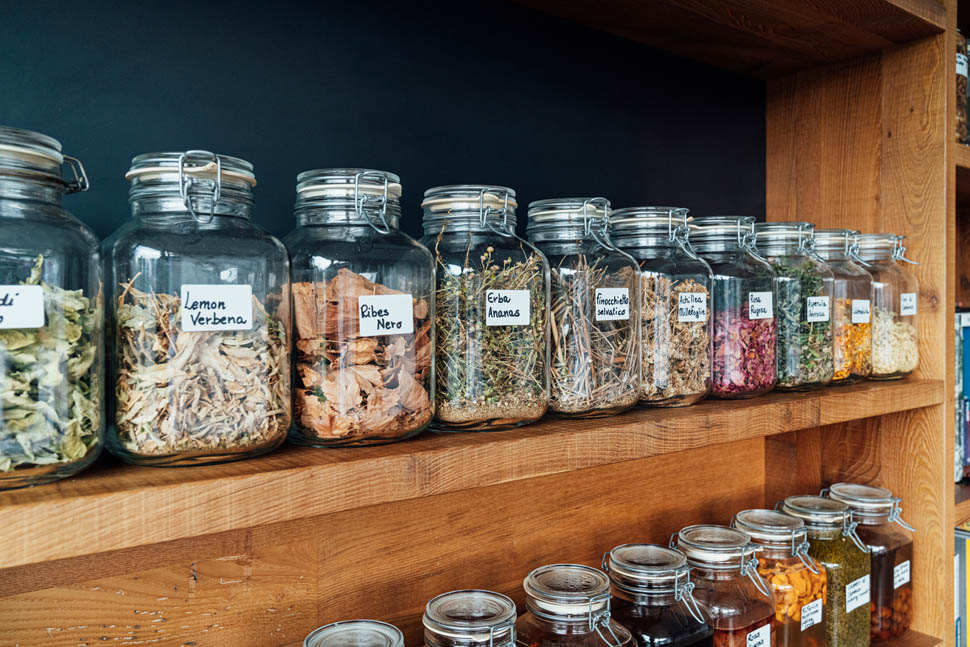
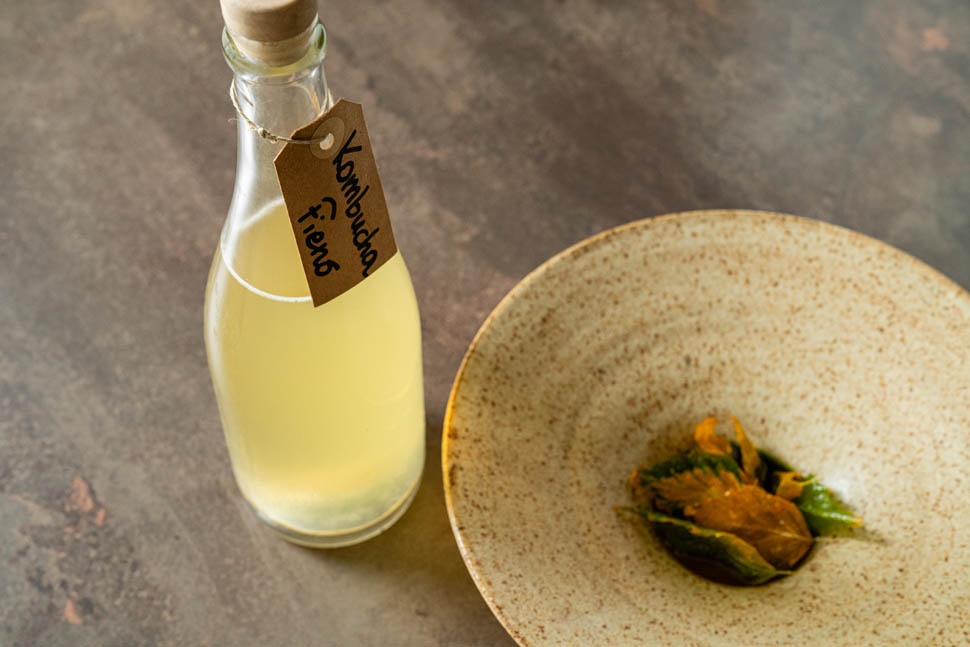
There will be Foraging Days planned to explore nature with the chef, alongside masterclasses at the venue to learn the secrets of fire cooking, smoking, and the different types of wood to use. Obviously, there will also be insights into fermentations, also fundamental in Gatti's cuisine, who will also address the subject of alien and invasive raw materials with evenings featuring suppliers labeled as ethical, where storytelling will be followed by a tasting.
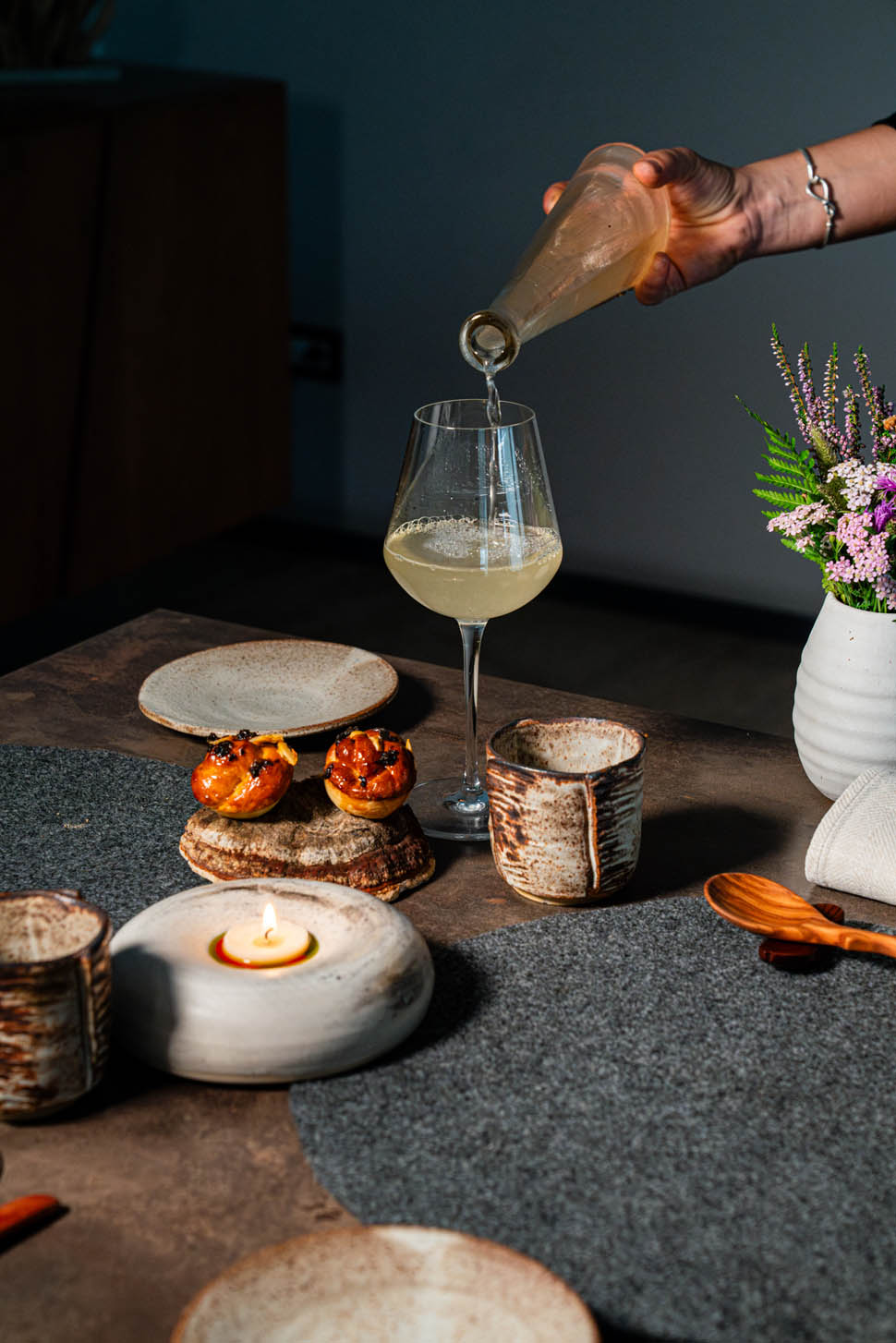
The kitchen
Mirko is determined to take his cuisine out of a restricted world of followers, to make its versatility, ethical and cultural aspects appreciated, and last but not least, naturally, the taste, which we could define as different: "I would like to spread some culture and what drives me is the opportunity to get my hands on certain elements, discover them, and use them outside the ordinary standards. At the center of everything is nature, then there is the desire to delve deep, putting aside a repertoire of unexpected flavors. Knowing how to tame the material through its knowledge, you find yourself with flavors that you can replicate in dishes, beyond the known, classic, and traditional ones: and this goes beyond trends, so you move forward and try to evolve."
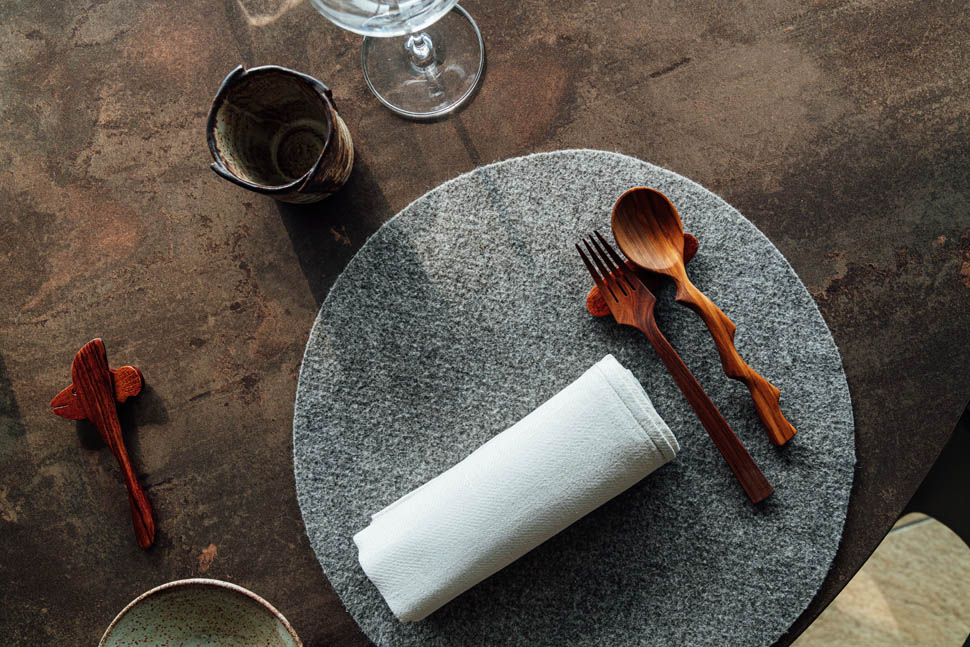
Tasting Gatti's ideas materialized in his gastronomic offering, articulated between the menu, the three Habitat menus (forest, sea, and lake), and the Native, destined to represent even more specifically the philosophy of the venue, one realizes the profound approach applied by the Chef to his cuisine, with the almost exclusive use of fire as the main theme in cooking and the use of often unfamiliar ingredients. The results? All this cultural framework could not stand without a fundamental ingredient like taste. And - albeit often in an unprecedented way - taste, or rather the tastes, in this chef's dishes are fundamental, intense, and decidedly successful.
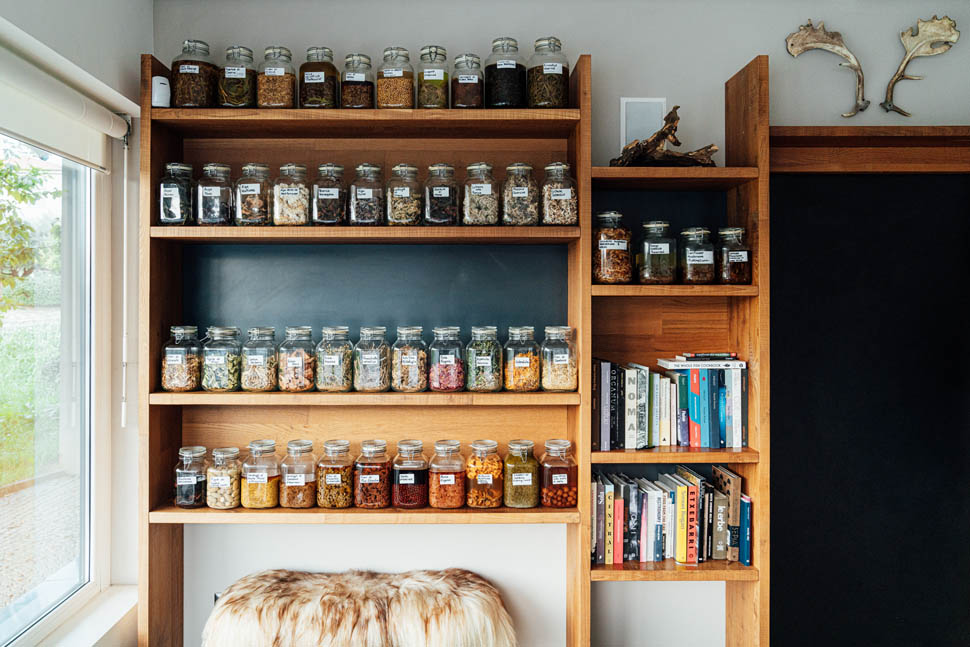
Sitting at the table here is an experience to be had, because it's fascinating and - with a minimum of necessary open-mindedness - accessible, far from wanting to be confined to industry insiders. Sara Pau also does a great job, being very good both at describing and pairing, in addition to the expected (in a place like this) presence of wines with a precise natural orientation, beverages ranging from juice to kombucha to herbal infusions.
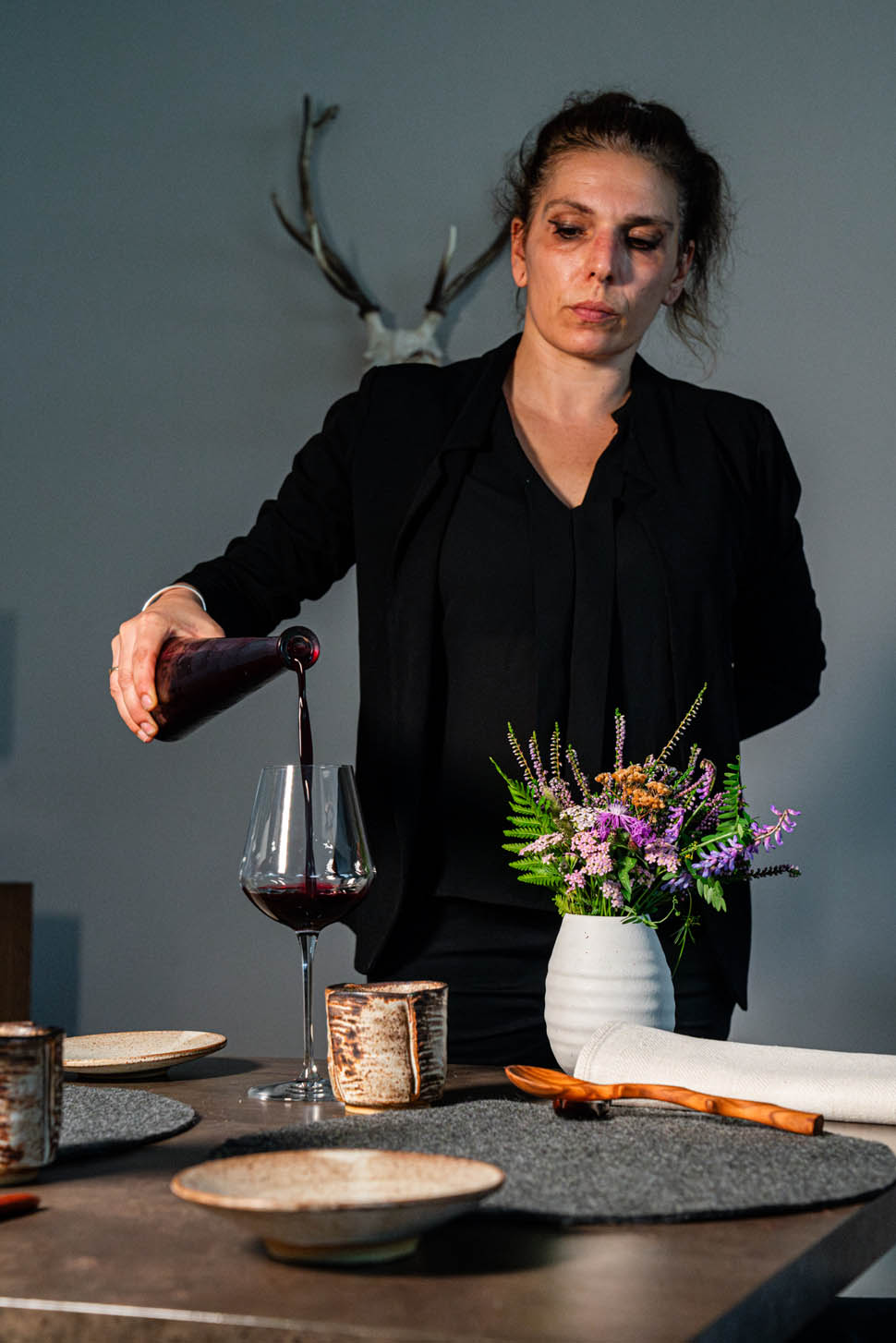
The dishes
As for the dishes, you can have a lot of fun here, firstly because Gatti's cuisine doesn't fit into the usual patterns. "All my cooking is done over fire: once I learned to use it, I never looked back because the flavors and textures that come from the fire are unique, so I couldn't imagine a project like this without it. It's a very honest cuisine." And, we add, authentic and with less obsessive control, the results of which express a great identity. As for meats and fish, the animals are used in their entirety, and what can't be used in a main preparation becomes the base, for example, for koji, miso, garum, and shoyu. Our journey, between sea and land, began with an exquisite jellyfish dumpling, sauce from its head, and sea buckthorn, with a bold taste and great length.
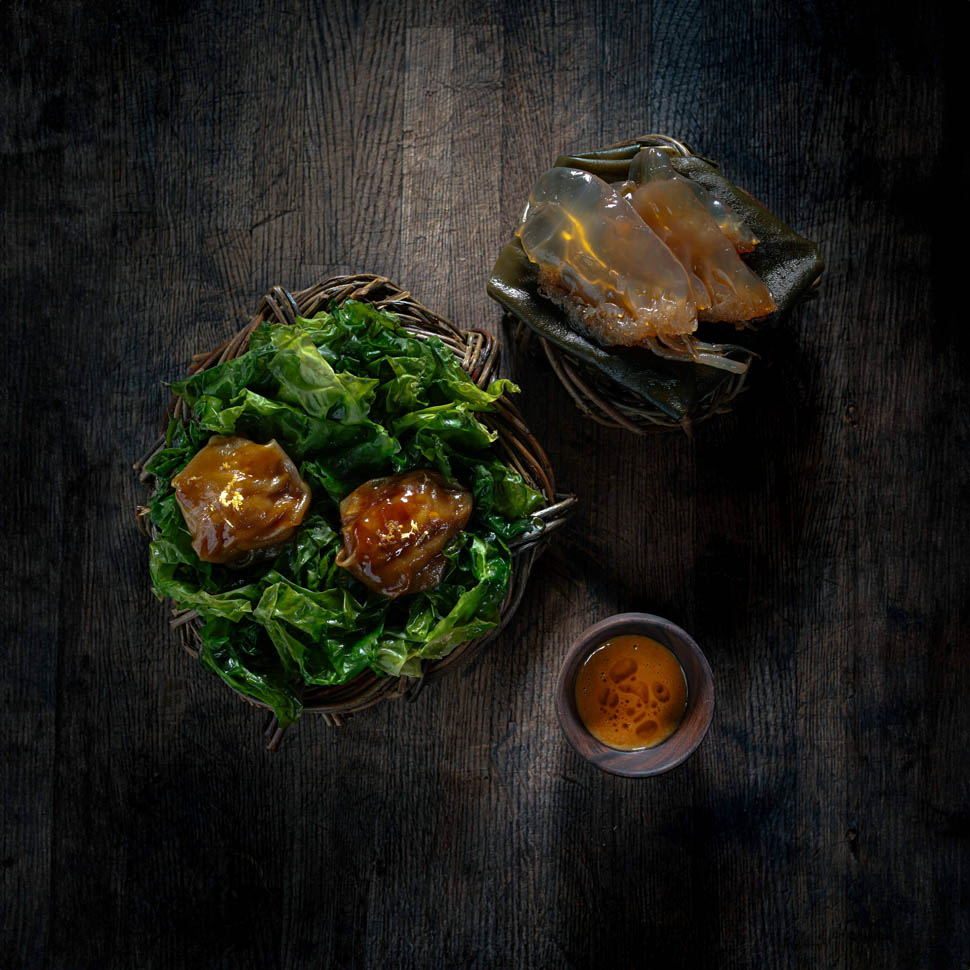
The seaweed pulse ramen with smoked pancetta, turnip cabbage, and winter mushrooms was hearty. The intense monkfish liver, kelp seaweed, and fermented cuttlefish sauce had a seductive complexity.
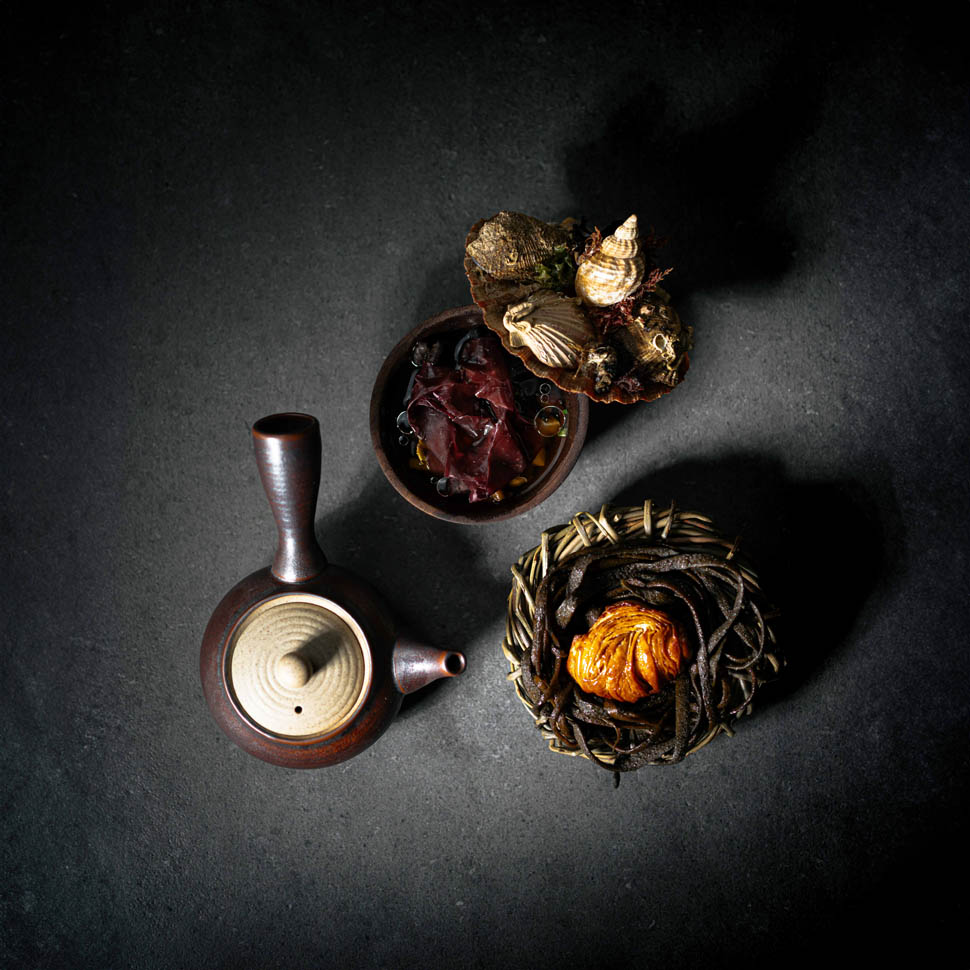
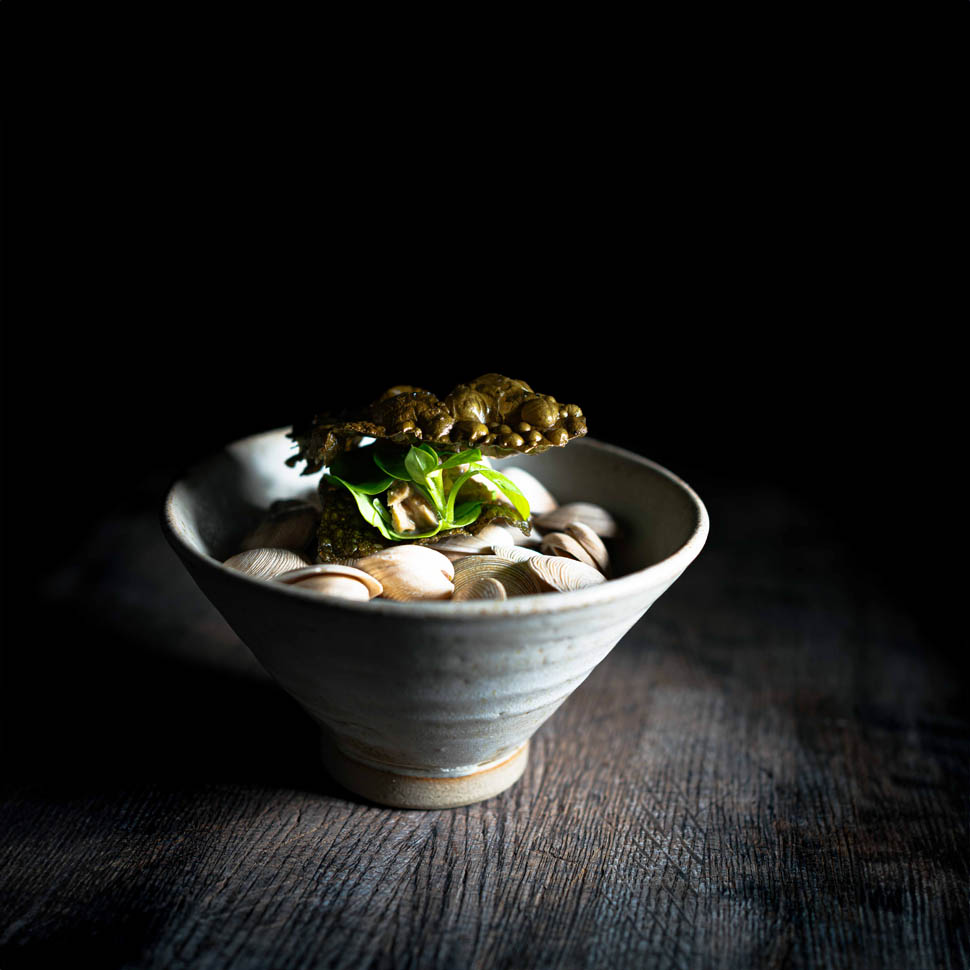
Finally, someone who calls the ingredients by their name, so what would have been called 'tripe' are the swim bladder of cod, razor clams, dill, and fermented sea buckthorn, a dish of rare succulence and depth. There were also delightful sensations with the "sea nettle": skewered anemones, yolk, and barley wine.
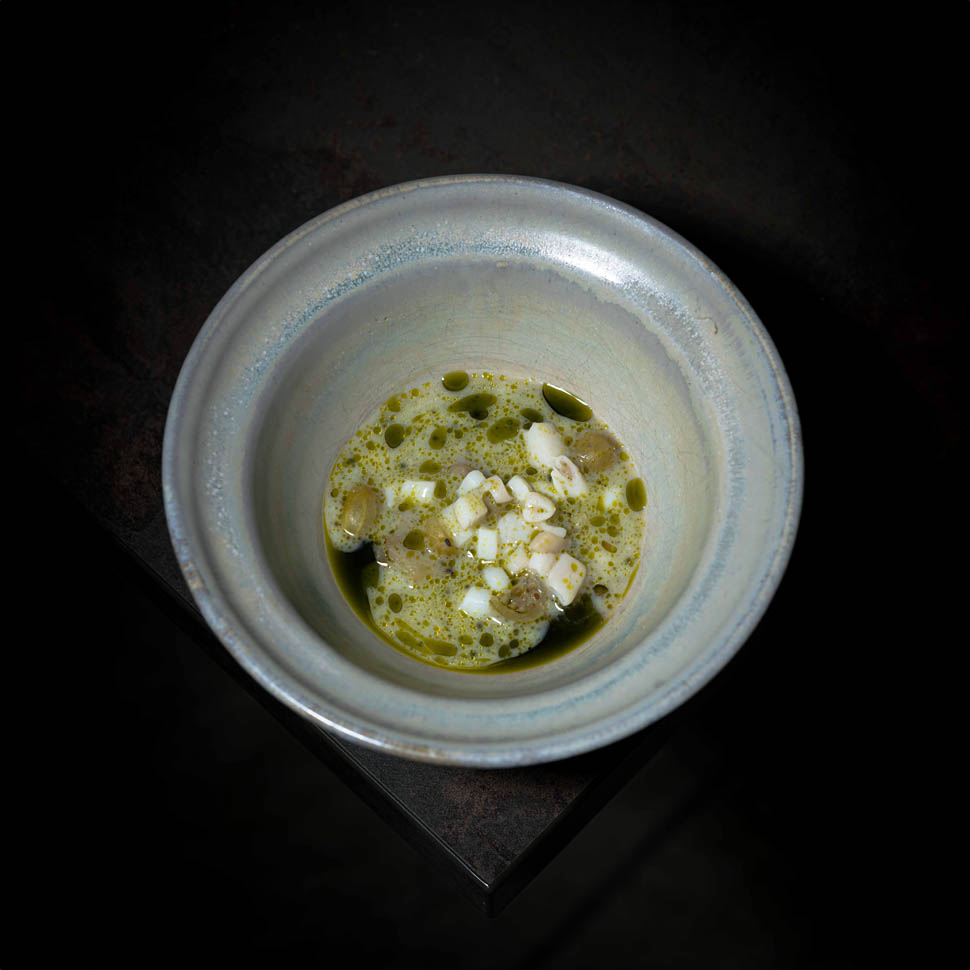
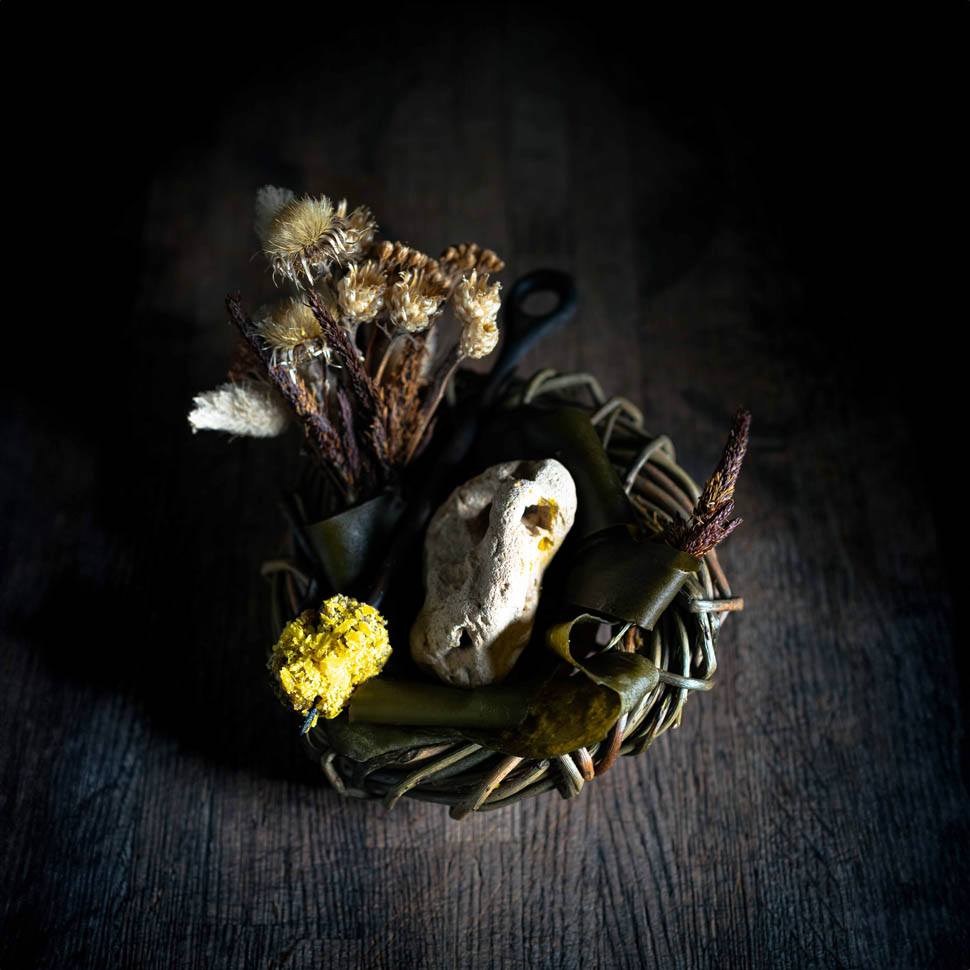
The French toast with caramelized onions, hay-aged cheese, and truffle was pure indulgence. Perfectly cooked and sublime in flavor was the sweetbread cooked on larch wood with barley miso sauce. The deer tongue, not easy to find but unmistakably flavored, was served with miso sauce, quince kosho, and birch leaf.
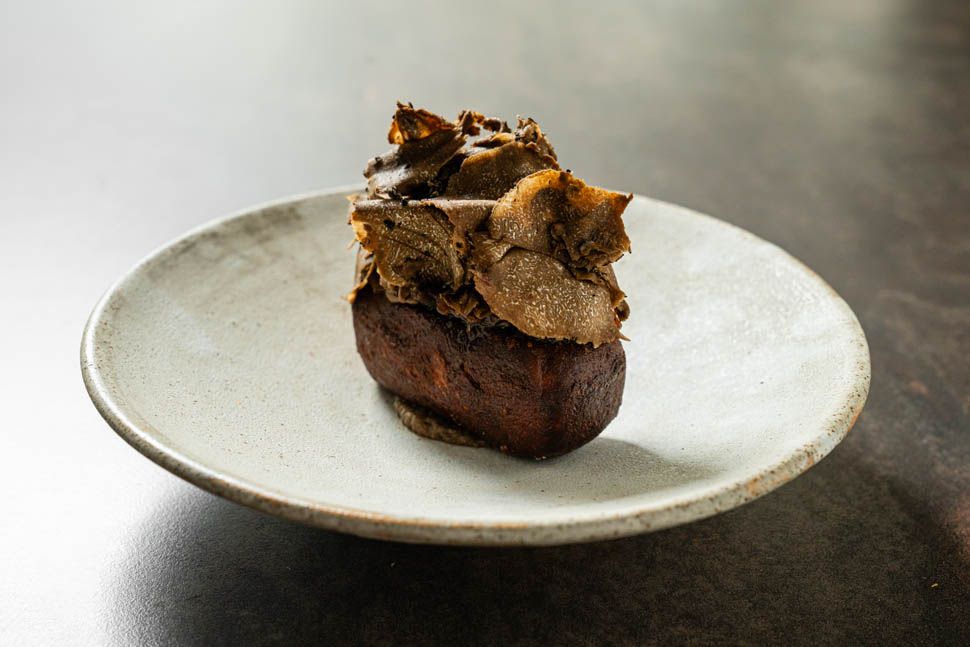
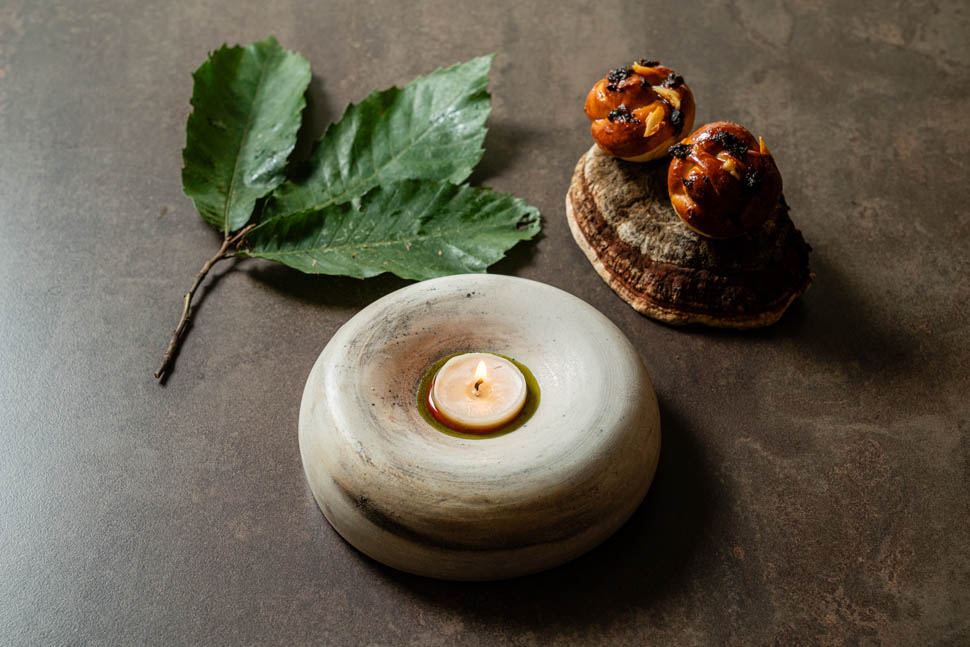
The desserts, memorably different, included birch ice cream with black currants and "chocolate" hot sauce made from buckwheat koji and sea oak, black apple, peaty whiskey, and "coffee" scallop. Don't miss out on this place.
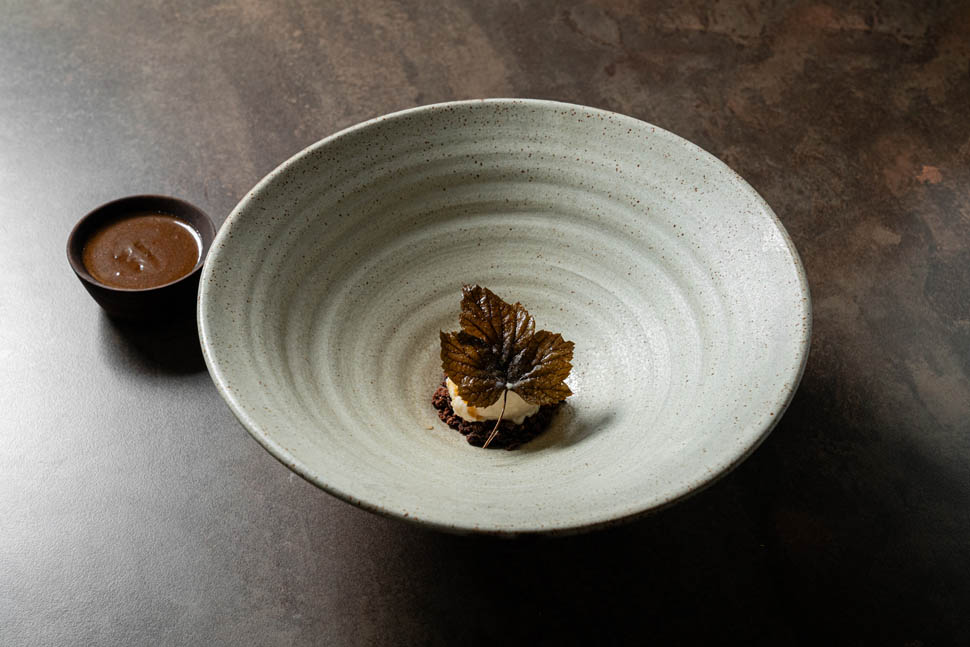
Contacts
Àbitat
Via H. Dunant, 1, Como, Italy
P. 349 068 3973
